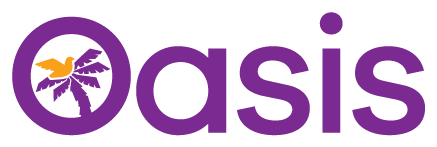CEO Deb reflects on the destructive nature of the chronic avoidance of accountability
Valentine’s is upon us. At Oasis, we can’t help but reflect on this day with mixed feelings. Having recently listened to FKA Twigs talk frankly, openly and bravely about her experience to Louis Theroux for his Grounded podcast, I reflected on this public example of domestic abuse and what issues it raises for our views on victims and perpetrators.
When Shia LeBeouf acknowledged his destructive and abusive behaviour following the singer FKA Twigs suing him for physical, mental and emotional abuse I was pleased. I was pleased because this is a man who was a traumatised child and he is acknowledging the impact this has had on him as an adult. I was pleased because FKA Twigs has done an enormous service to women experiencing coercion and control by bravely confronting this issue publicly and being an outstanding role model for others.
I was also disappointed at the same time. Disappointed when I realised that LeBeouf’s statement was pre-framed with a statement that many of the allegations are untrue, BUT…
That clause before ‘but’ is hugely problematic – it leaves me with so many unanswered questions. Which bit wasn’t true? Is it the bits about berating her aggressively in a petrol station? Or maybe the claims of sexual abuse? Or, it could be the demand for emotional reassurance. Really, we need more detailed insight into his thinking around this issue. Because what Shia has achieved with this statement is the allowance of doubt. Doubt that the singer he abused has been entirely truthful. He has also allowed those that do not acknowledge fully both the gendered and scary nature of this type of abuse to find him a get-out clause. I can hear it now… but, she lied; but, he said sorry; but, he is traumatised.
I thought leaving him was genuinely impossible’
FKA Twigs

What we need from men like Shia is a full and frank acknowledgement of their harm. Yes, I want Shia to confront and do work with his inner child. Yes, I want to be the person that accepts everyone’s ability to access post-traumatic growth. However, what we know is that accessing that growth means self-compassionately holding our hands up, no buts.
“I have done bad things. I have hurt people. I am going to work on that.”
As a sector and a society, we need to learn more about the real opportunities for change of those that abuse in this coercive and controlling manner, we need to gain a significant understanding of the capacity for accepting responsibility that the person has – we watch with interest the outcome of his long-term stay in a treatment centre.
There is no doubt that he is a traumatised child, but now, as an adult, can he take full responsibility for what he has done?
Can we stop asking “ Was she truthful? Why didn’t she just leave?” and start asking “Why didn’t he stop? Why didn’t he seek help for his trauma? What preventative measures could have been put in place by society?”. It takes a whole community to eradicate domestic abuse, from all angles and from all aspects.
When all is said and done, we cannot excuse our bad behaviour, we have to own it. Let’s have some real, heartfelt apologies, let’s not say ‘Sorry, but…’’
…(I couldn’t leave until I had) just gathered enough of myself to know that I wouldn’t go back’
FKA Twigs
Get support
Call our helpline on 0800 917 9948 (Monday, Tuesday, Wednesday 09:30–11:30am, 12:30–2:30pm
Thursday and Friday 09:30–11:30am, except bank holidays) or email helpline@oasisdaservice.org (if it’s safe to do so)
If you or your family are in immediate danger please call the police on 999 (if you can’t speak, cough or tap the handset then press 55 on your phone – the police will know it’s an emergency)
In a non-emergency situation, you can call Kent Police on 101.
*All images used on this website are representative. All names are anonymised for people’s safety.

